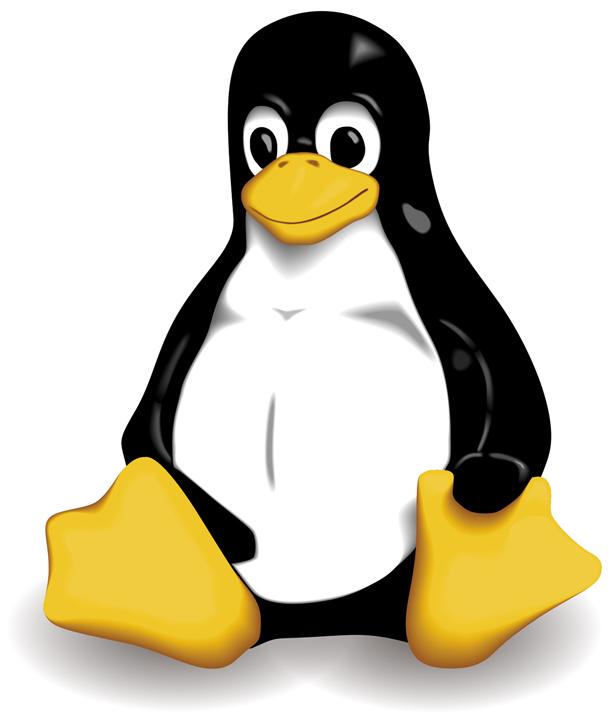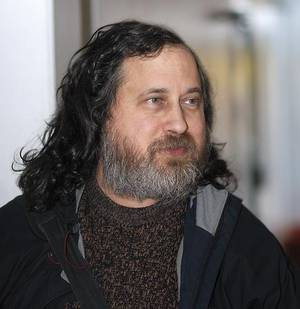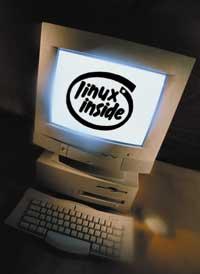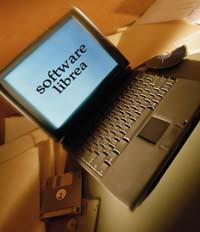Free software, much more than four frikis
2012/03/01 Leturia Azkarate, Igor - Informatikaria eta ikertzaileaElhuyar Hizkuntza eta Teknologia Iturria: Elhuyar aldizkaria

Computers, like many other technologies, have had a long history before spreading to society as a whole, longer than we think. They were born in the academic and university world. At the beginning of the 20th century and from the 1980s onwards, they began to become global uses. Meanwhile, at this time between the 50-80's, computers were large and expensive machines, and they were only in universities and large companies. As for the software that was made for them, it was customary that it was disseminated and distributed freely and freely, that contributions were made to the software of others... On the one hand, because it has always been customary to publish and share discoveries in the academic world; on the other, because computer producers also saw with good eyes that the programs that made their very expensive machines more useful were free and accessible. Hacker was philosophy and epoch.
However, in 1980 copyright law was extended to software. And because of the expansion that computers were having, the software became a business opportunity and software companies emerged that sold only binary or compiled software code, not source code.
Faced with this new scenario, Richard Stallman, from the MIT Artificial Intelligence Laboratory (Massachusetts Institute of Technology), left the organization and founded the FSF (Free Software Foundation), with the aim of recovering the philosophy of the hacker he knew and boosting free software. In his opinion, software must be free, because he believes that sharing knowledge is essential for society to advance and, on the other hand, being free allows better quality programs.
But what exactly is free software? Definition published by the FSF in 1986 by Stallman. A software is free if your user has four freedoms (using numbering from the usual 0 in computing):
0 freedom: freedom of program execution whatever its purpose.
Freedom 1: freedom to analyze the program and adapt it to your own needs.
Freedom 2: freedom to copy the program and to distribute copies.
Freedom 3: Freedom to improve the program and spread the improved version for everyone to benefit.

To guarantee these freedoms it is necessary that the source code of the programs be opened. On the other hand, in addition to the definition of free software, FSF and Stallman unveiled the concept of copyleft (maintaining availability in case of modifying or improving freely distributed software) and invented the first copyleft free software distribution license (GPL or General Public License).
Stallman also launched the GNU project, which aimed to have all the necessary system on a computer and the most common programs as free software. Most of the programs required by a basic system (Richard Stallman himself developed many of the tools needed for software development, still widely used, such as the Emacs text editor and the GCC C compiler), and a Finnish student named Linus Torvalds, developing the core of the missing operating system. The operating system was the same as UNIX systems and was called Linux.
Much more than Linux
It was then that free software began to expand gradually, through Linux, trying to break the Windows monopoly. And since then, many people associate free software with Linux, and that is why the belief that it is a thing of four computer frikis is is so widespread. But free software is not just Linux. There are many other programs: Web browsers Mozilla Firefox and Google Chrome, covering more than half of the market, the range of office software LibreOffice, the GIMP drawing program, 3D design software Blender, etc.
And in many areas that are not the computers of ordinary users, free software predominates. For example, more than 90% of supercomputers that allow science progress work with Linux.
In addition, more than 60% of web servers have Linux as their operating system. And most of the software used in: Apache web servers, nginx or lighttpd, MySQL database, Python, Perl and PHP programming languages, MediaWiki (software used by Wikipedia), Drupal, Joomla!, Software Plone or WordPress CMS (Content Management System) and many more. If not all of them were, surely there would not be the Internet we know: web hosting services, blogs, etc. would be much more expensive for software licenses, and many individuals or small businesses could not hire it.
The presence of free software is also important in smartphones and tablets, as we inform you in the October 2010 issue. If it were not for the Android operating system developed by Google for these devices and based on Linux, due to the development cost of its own operating system and the difficulty of getting an attractive number of applications around this operating system, for other manufacturers it would be difficult to break the de facto monopoly obtained by Apple, and there would be no adequate alternative to its expensive and closed products. However, thanks to this, more than half of current smartphones have a free operating system, while on tablets the number of Android users gradually increases. Finally, we cannot forget the influence of free software in other areas such as photography, literature, music, encyclopedia and audiovisual, the creation of the idea of free culture...
Free software is no longer a crazy utopia of a few idealistic hackers: it is not a matter of a few idealistic hackers, because many very important companies like Google are promoting and financing free software (even if they are their own economic interests: for these companies it is cheaper to use free tools, improve them and adapt them to their needs than to develop from scratch); and it is not a crazy utopia because our world has already changed.

Gai honi buruzko eduki gehiago
Elhuyarrek garatutako teknologia





